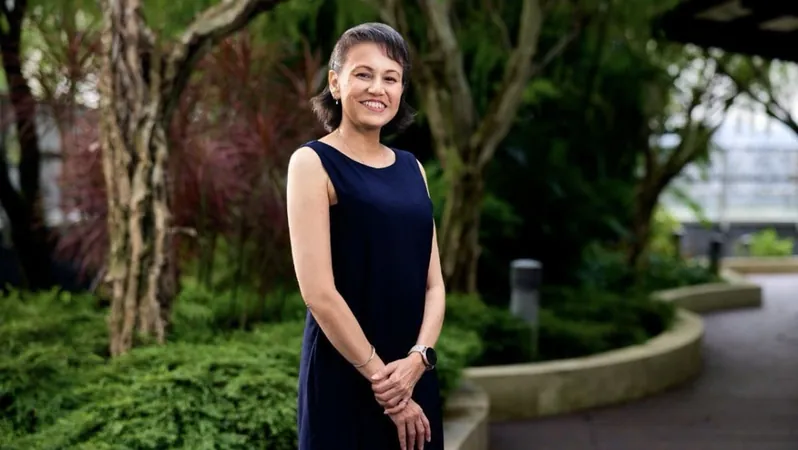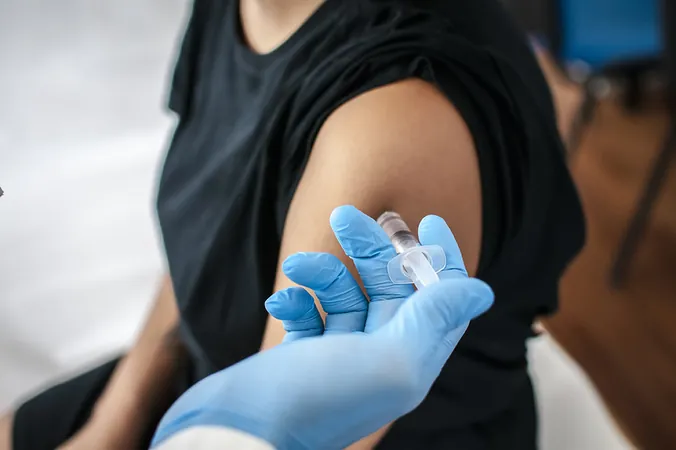
Braving the Battle: A Woman's Journey Through Genetic Testing and Preventive Surgery
2025-06-15
Author: John Tan
What is Genetic Testing for Breast Cancer?
Genetic testing is a crucial tool that identifies mutations in genes that can elevate the risk of breast cancer. Notably, BRCA1 and BRCA2 are two significant genes; abnormalities in these can disrupt DNA repair processes, potentially leading to the development of cancer, as explained by breast surgeon Dr. Celene Ng.
Caution Before You Test!
It's essential to approach genetic testing thoughtfully. Dr. Ng emphasizes that the majority of breast cancer cases are sporadic, with only 5 to 10 percent attributed to genetic factors. Genetic testing is usually recommended for younger patients, especially those diagnosed before age 50, or those with a family history of various cancers.
Weighing the Risks and Benefits
Before proceeding with genetic testing, consulting with a genetic counselor is vital to grasp the broad medical and personal implications. This includes potential impacts on family dynamics, insurance eligibility, and employment opportunities, according to gynecologic oncologist Dr. Joseph Ng. Thankfully, in Singapore, insurance laws protect patients by preventing companies from discriminating based on genetic test results, except in rare and large policies.
Empowerment Through Genetic Knowledge
Genetic testing can empower patients by guiding informed decisions about their health. For those diagnosed with later-stage gene-positive breast cancer, targeted treatments are available. More importantly, genetic screening allows risk reduction through proactive measures like regular check-ups or even preventive surgeries.
The Realities of Preventive Surgery
However, the decision for preventive surgery, such as the removal of breasts or ovaries, comes with significant emotional and physiological consequences. As Dr. Ng warns, removing ovaries in pre-menopausal women can induce sudden menopause, leading to increased long-term risks for heart disease and osteoporosis. It's critical for women to reflect on the emotional significance of retaining their natural breasts and consider other conservative options before making a decision.
Finding Strength in Family
Ultimately, navigating genetic testing and treatment choices is a personal journey. Many women find immense strength and support through their families as they face tough decisions regarding their breast health, symbolizing resilience and hope in the fight against cancer.




 Brasil (PT)
Brasil (PT)
 Canada (EN)
Canada (EN)
 Chile (ES)
Chile (ES)
 Česko (CS)
Česko (CS)
 대한민국 (KO)
대한민국 (KO)
 España (ES)
España (ES)
 France (FR)
France (FR)
 Hong Kong (EN)
Hong Kong (EN)
 Italia (IT)
Italia (IT)
 日本 (JA)
日本 (JA)
 Magyarország (HU)
Magyarország (HU)
 Norge (NO)
Norge (NO)
 Polska (PL)
Polska (PL)
 Schweiz (DE)
Schweiz (DE)
 Singapore (EN)
Singapore (EN)
 Sverige (SV)
Sverige (SV)
 Suomi (FI)
Suomi (FI)
 Türkiye (TR)
Türkiye (TR)
 الإمارات العربية المتحدة (AR)
الإمارات العربية المتحدة (AR)